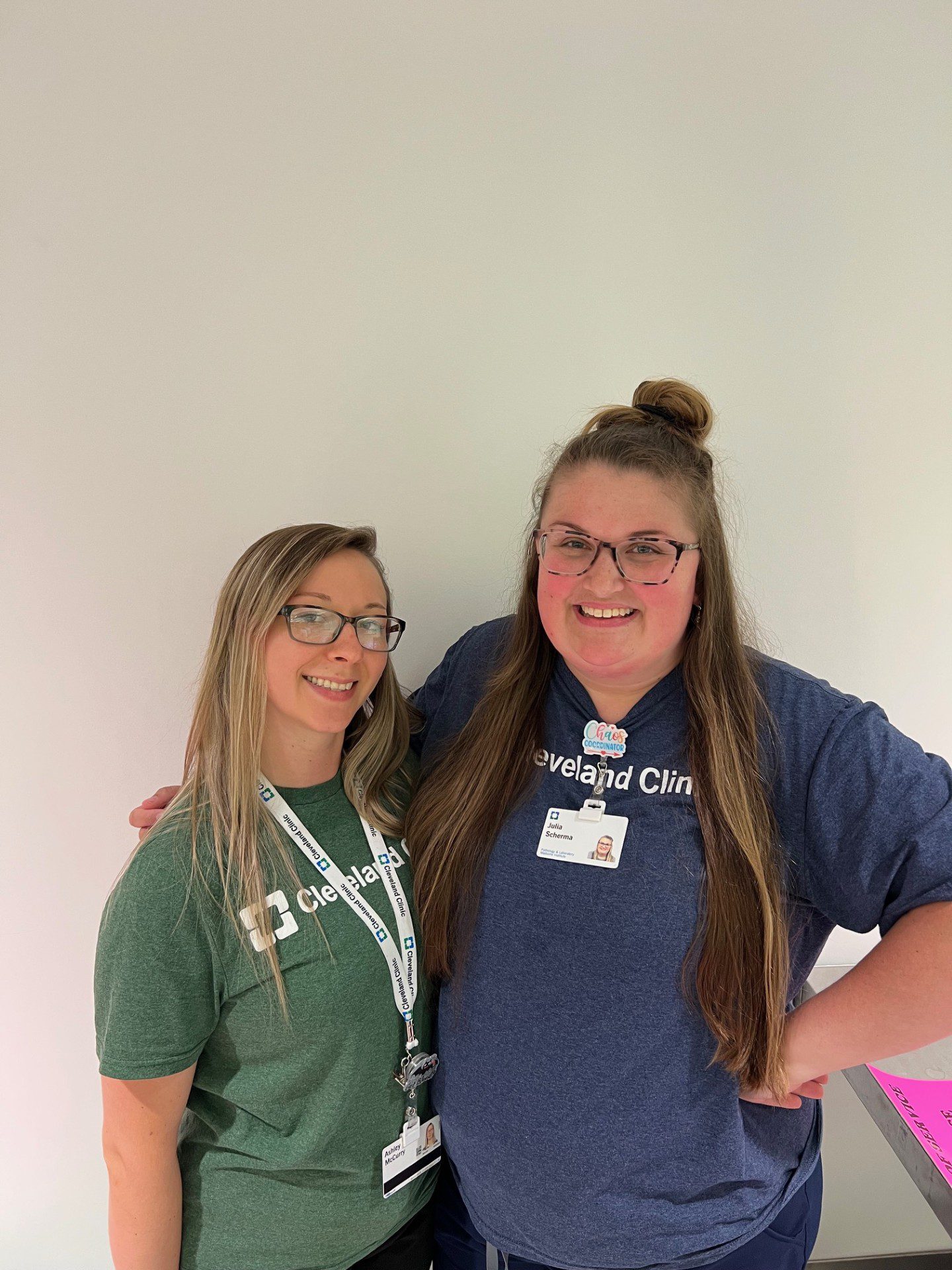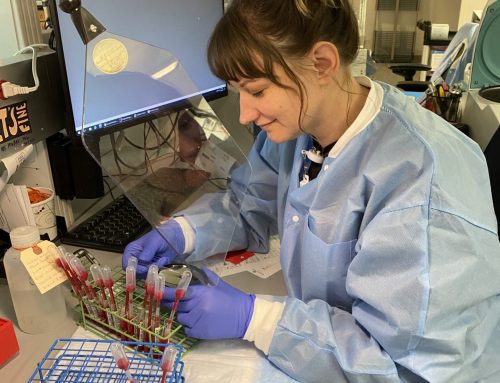
Laboratory Coordinators Pursue Careers from College to Cleveland Clinic

Laboratory Coordinators Pursue Careers from College to Cleveland Clinic
 Each year, the Cleveland Clinic Section of Transfusion Medicine issues thousands of units of red blood cells, units of plasma and doses of platelets, and performs thousands of screening procedures and antibody identifications. A major component of the Section of Transfusion Medicine is the Blood Bank, where laboratory coordinators Julia Scherma and Ashley McCurry are among the caregivers who assess and process blood in order to get it to operating rooms and to patients in a timely manner.
Each year, the Cleveland Clinic Section of Transfusion Medicine issues thousands of units of red blood cells, units of plasma and doses of platelets, and performs thousands of screening procedures and antibody identifications. A major component of the Section of Transfusion Medicine is the Blood Bank, where laboratory coordinators Julia Scherma and Ashley McCurry are among the caregivers who assess and process blood in order to get it to operating rooms and to patients in a timely manner.
In their roles, Ashley and Julia test blood for antibodies (protective proteins produced by the immune system that remove bacteria, fungi, viruses and toxins from the body). They also train new caregivers and help the leadership team in decision making and planning.
A Winding Path
Ashley and Julia have followed similar career paths, meeting first as medical laboratory science students at Bowling Green State University, then working in the lab at another Cleveland hospital system before joining Cleveland Clinic in 2023.
Both say that they came to Cleveland Clinic because of the career potential. “The Blood Bank has been a great opportunity to keep my career moving, growing and learning,” Julia says. “For instance, I’ve done a research project with one of the doctors, and I was able to write my abstract and present it at the Patient Safety Day program. We also see very difficult things you might not see at smaller hospitals, patients that are more complex. You never know what antibodies someone’s going to have or what their workup is going to look like.”
Ashley had similar ambitions. “I was looking to do more advanced testing, and thinking about a leadership position, but I wasn’t sure what was out there,” she says. A coworker at her previous employer mentioned the Cleveland Clinic position. “I knew that they did more advanced testing at Cleveland Clinic, and they had things here that I wanted to see and do. So, I applied, and I’ve been here ever since.”
Support from the Top
Ashley and Julia credit their leadership, and especially their manager, Megan Hearns, for helping them in their new positions. “Megan has really helped me jump into a leadership position and figure out how to lead,” Julia says. “Our leadership team checks with us several times a day to see if there’s anything that we need. And our medical director comes around every morning and says hello to every caregiver.”
According to Ashley, “Megan was very encouraging and supportive when I was taking the Specialist in Blood Bank exam. She’s also open to giving people projects or things to learn or advance their career so that they can excel in the blood bank, which I think can be hard to do at a smaller hospital.”
Everyone Lends a Hand
Their colleagues in the Blood Bank offer a wide range of experience that helps things move smoothly. “The Blood Bank is a great mixture of seasoned caregivers as well as new grads,” says Julia. “We have people who have done this for a long time, but also people who are fresh out of school and have newer ideas.”
One thing that Julia especially appreciates about the Blood Bank is the spirit of teamwork. “Everyone’s willing to help each other. People will see that you need some help, and they’ll just jump in.”
This synergy is vital to the team’s performance and efficiency, according to Ashley. “When it gets busy, it’s ‘all hands on deck’ and we all have to communicate well and make sure we’re all working together to get a lot of blood out in a very short time,” she says.
Always Something to Learn
What would Julia and Ashley tell prospective caregivers about working at Cleveland Clinic, especially in the Blood Bank?
“I would tell them that Cleveland Clinic, as a whole, is very research-based,” Julia says. “You can get involved in different projects, if that’s something you’re interested in. You can learn something new every day, no matter how long you’ve been here.”
Ashley would stress the opportunities for career growth. “I have told people to come here if they are serious about working in a blood bank and really want to advance their career and learn a lot of new things, because we have the opportunities here. With our experience, Julia and I can show them what blood banking is all about.
“In fact, we have a program where you can get certified as a Specialist in Blood Bank certification. So, if you have your bachelor’s degree, even if it isn’t in medical laboratory science, you can get a Specialist in Blood Bank certification.”



